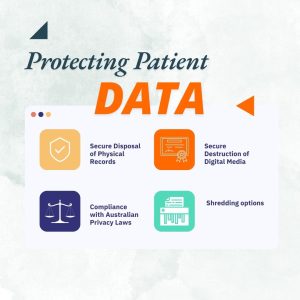Data Breaches In Australia
In an increasingly digital world, data breaches have become a prevalent threat to individuals and organizations alike. In Australia, the cost of data breaches has not only risen in financial terms but has also had far-reaching implications for reputation, customer trust, and regulatory compliance. In this blog post, we will delve into the multifaceted cost of data breaches in Australia, exploring not only the financial toll but also the broader impact on businesses and society.
The Financial Toll
Data breaches in Australia have proven to be a costly affair. The financial ramifications of a breach can include fines, legal fees, and the cost of remediation. As of my last knowledge update in September 2021, Australia had implemented the Notifiable Data Breaches (NDB) scheme, which mandated organizations to report data breaches. Failure to comply with the NDB scheme could result in significant fines, with penalties reaching up to $1.8 million for serious or repeated breaches. These fines alone can be crippling for many businesses.
Moreover, the direct financial cost includes expenses related to investigating the breach, notifying affected individuals, and providing credit monitoring services. Cybersecurity enhancements and improvements in data protection protocols are additional expenditures that organizations must shoulder.
Loss of Trust
Beyond the financial toll, data breaches can erode trust, which is often harder to quantify but no less impactful. When customer data is compromised, the affected individuals may lose trust in the organization responsible, leading to a decline in customer loyalty and brand reputation. Rebuilding trust can be a long and arduous process, often requiring substantial investments in public relations and marketing efforts.
Business Disruption
Data breaches can disrupt business operations, leading to downtime and productivity losses. Organizations may need to allocate resources to address the breach, diverting attention and manpower away from core business activities. This can result in missed opportunities, delayed projects, and increased operational costs.
Legal Consequences
Legal consequences, such as class-action lawsuits and regulatory penalties, can compound the financial toll of data breaches. In Australia, the Privacy Act 1988 (Cth) governs the handling of personal information and imposes strict obligations on organizations. Breaches can lead to investigations and potential legal actions, further draining financial resources.
The Broader Societal Impact
Data breaches also have a broader societal impact. When large-scale breaches occur, they can compromise national security and public safety. They may expose sensitive government data, critical infrastructure vulnerabilities, or personal information of individuals with high-security clearances. Such breaches can have implications for the nation’s overall security posture.
Prevention and Mitigation
To mitigate the cost of data breaches, organizations in Australia should prioritize cybersecurity measures, invest in employee training, and implement robust data protection protocols. Regular cybersecurity audits and risk assessments can help identify vulnerabilities and prevent breaches before they occur. A proactive approach to data security is often more cost-effective than reacting to a breach after the fact.
The cost of data breaches in Australia extends far beyond the immediate financial expenses. While the financial toll is significant, the loss of trust, business disruption, legal consequences, and societal implications are equally important considerations. To protect their interests and uphold their responsibilities to customers and society, organizations must prioritize data security and invest in comprehensive cybersecurity measures. In today’s digital landscape, the cost of complacency can be immeasurable.






